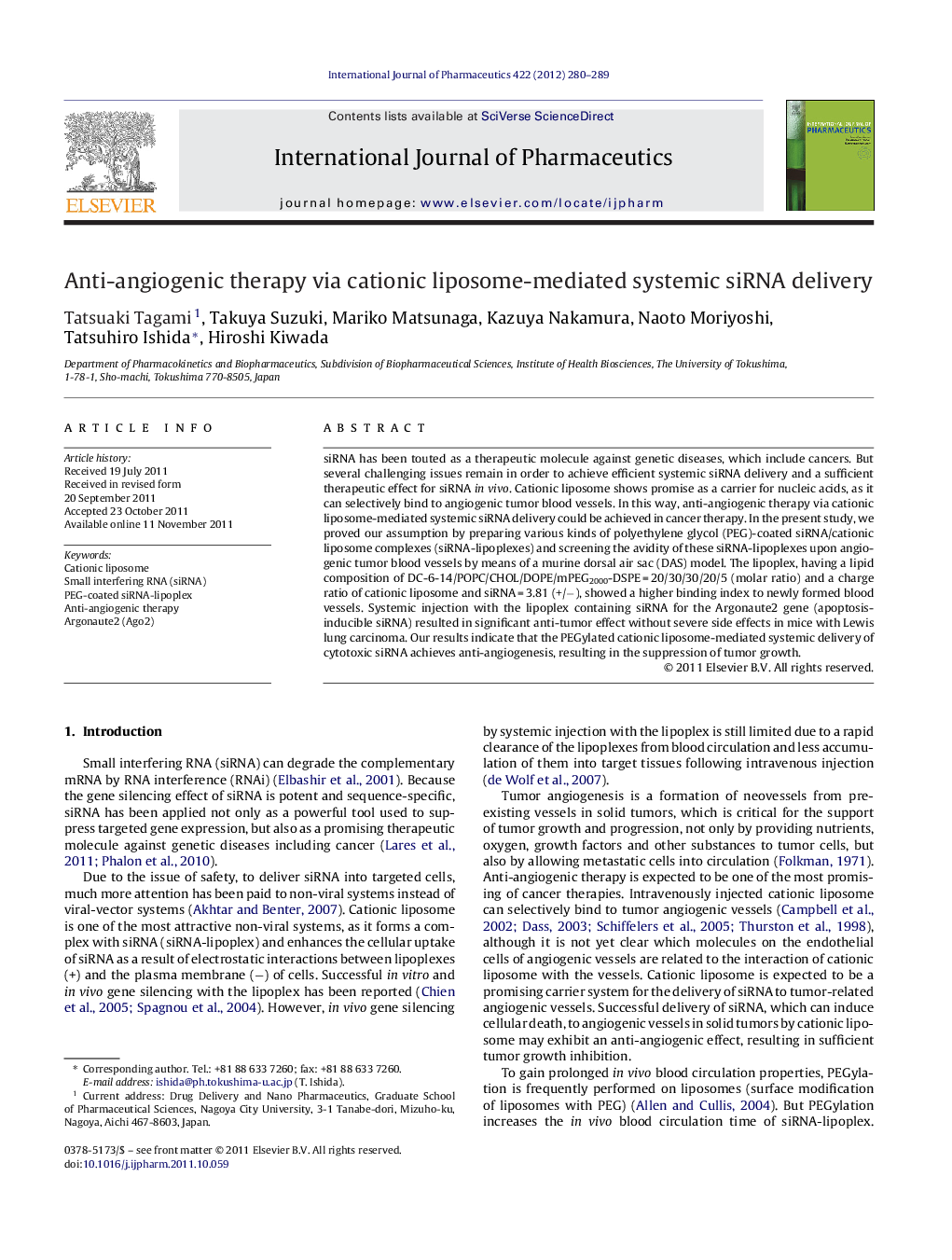| Article ID | Journal | Published Year | Pages | File Type |
|---|---|---|---|---|
| 2503109 | International Journal of Pharmaceutics | 2012 | 10 Pages |
siRNA has been touted as a therapeutic molecule against genetic diseases, which include cancers. But several challenging issues remain in order to achieve efficient systemic siRNA delivery and a sufficient therapeutic effect for siRNA in vivo. Cationic liposome shows promise as a carrier for nucleic acids, as it can selectively bind to angiogenic tumor blood vessels. In this way, anti-angiogenic therapy via cationic liposome-mediated systemic siRNA delivery could be achieved in cancer therapy. In the present study, we proved our assumption by preparing various kinds of polyethylene glycol (PEG)-coated siRNA/cationic liposome complexes (siRNA-lipoplexes) and screening the avidity of these siRNA-lipoplexes upon angiogenic tumor blood vessels by means of a murine dorsal air sac (DAS) model. The lipoplex, having a lipid composition of DC-6-14/POPC/CHOL/DOPE/mPEG2000-DSPE = 20/30/30/20/5 (molar ratio) and a charge ratio of cationic liposome and siRNA = 3.81 (+/−), showed a higher binding index to newly formed blood vessels. Systemic injection with the lipoplex containing siRNA for the Argonaute2 gene (apoptosis-inducible siRNA) resulted in significant anti-tumor effect without severe side effects in mice with Lewis lung carcinoma. Our results indicate that the PEGylated cationic liposome-mediated systemic delivery of cytotoxic siRNA achieves anti-angiogenesis, resulting in the suppression of tumor growth.
Graphical abstractFigure optionsDownload full-size imageDownload as PowerPoint slide
